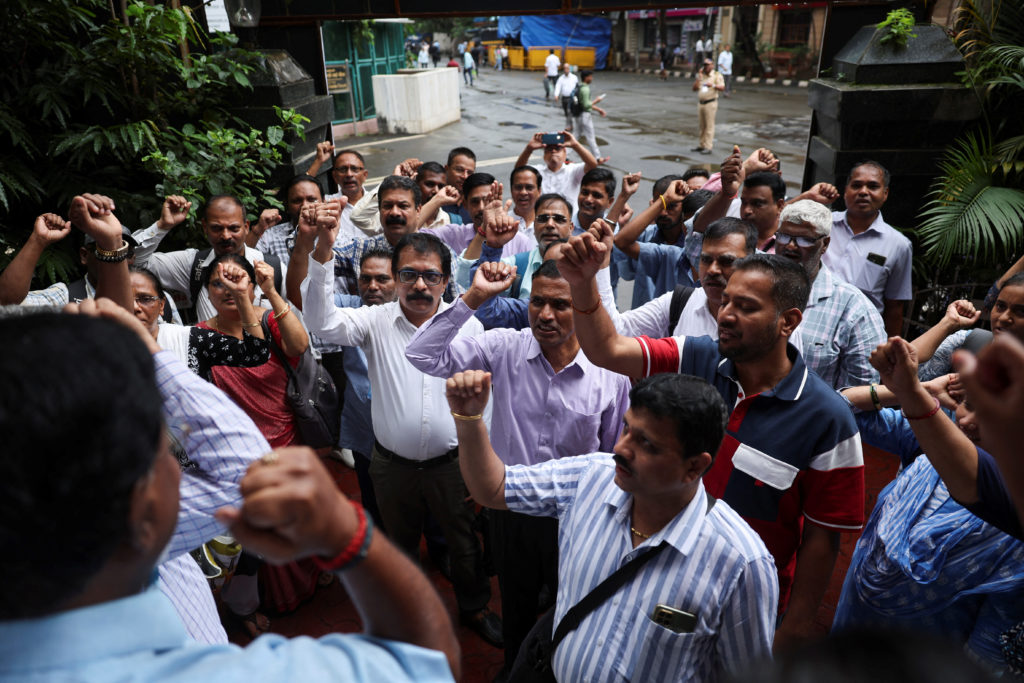Summary
Workers in India went on a nationwide strike to protest against the government's plans to privatize state-run companies and change labor laws. The strike disrupted public services, transportation, and businesses in several parts of the country as unions and other groups showed their discontent with the changes.
Key Facts
- Hundreds of thousands of workers participated in the nationwide strike in India.
- The strike was organized by 10 major trade unions and other groups representing farmers and rural workers.
- The protest partly halted public services and manufacturing activities.
- Coal mining operations stopped in several states, and some trains were disrupted.
- In cities like Kolkata and Mumbai, protests included rallies and slogans against the government's plans.
- The government is promoting foreign investments and private business, which unions oppose.
- The workers are demanding higher wages, stopping privatization, and withdrawal of new labor laws.
- Farmers' groups want an increase in the minimum purchase price for crops like wheat and rice.

